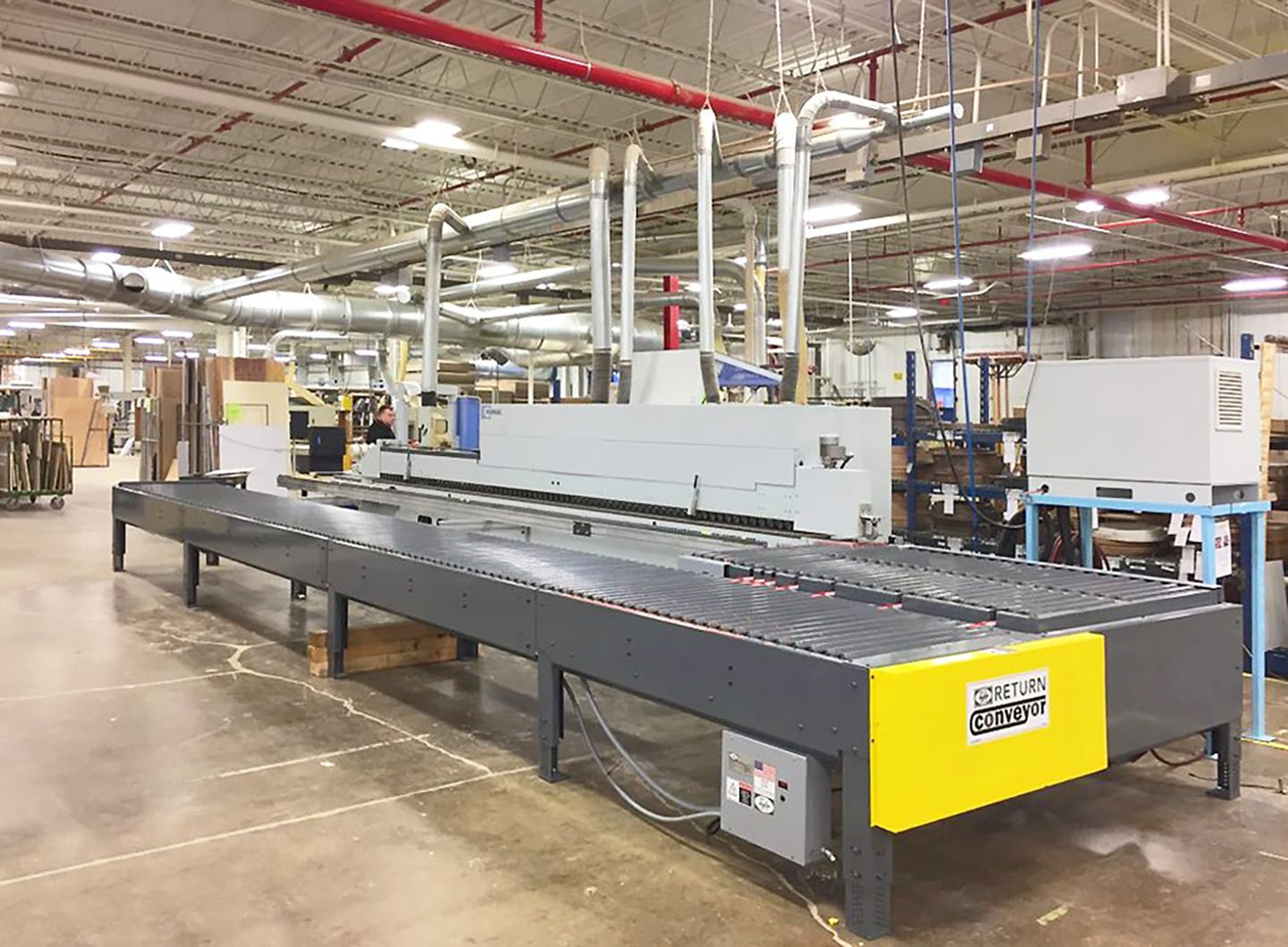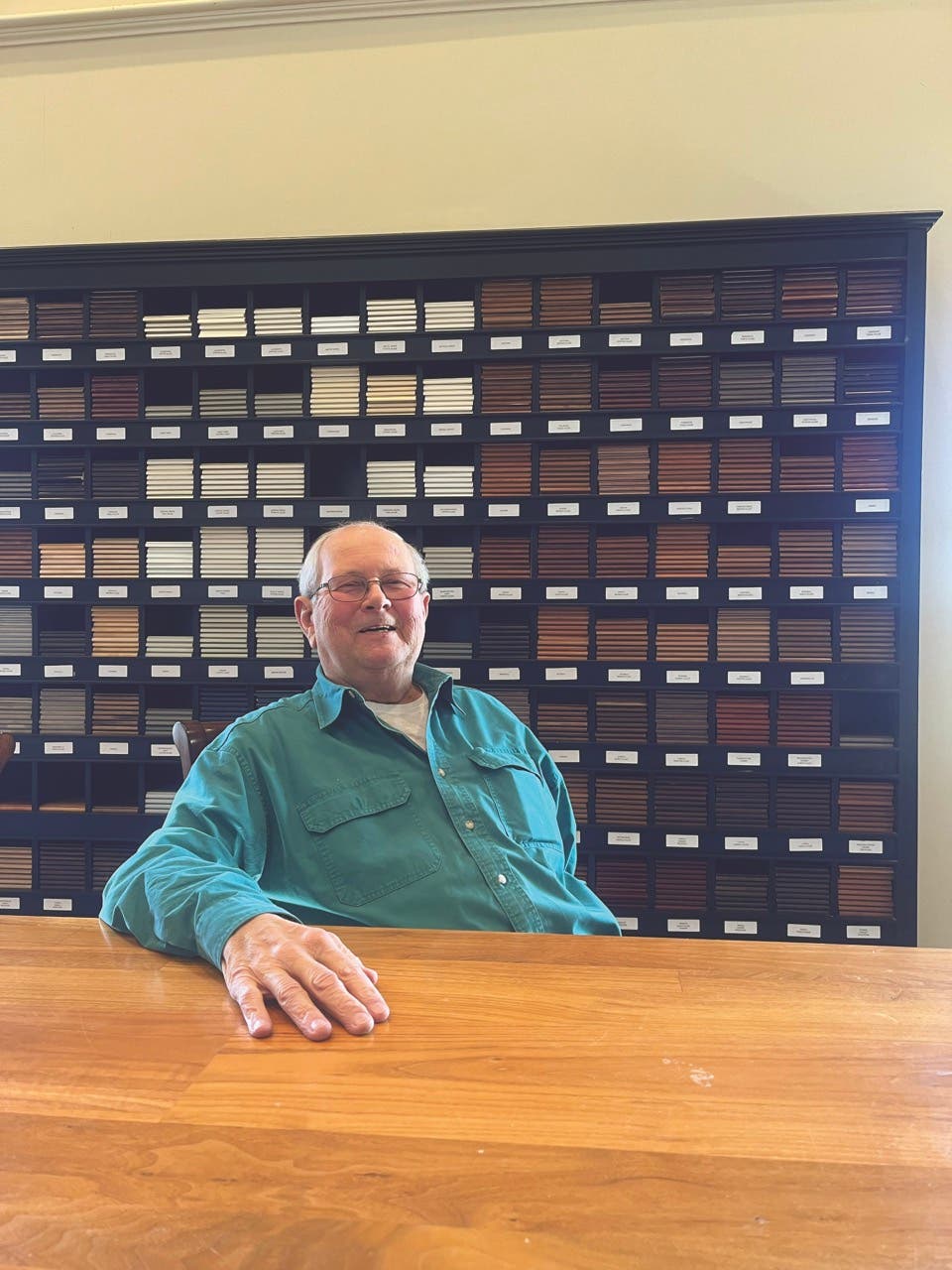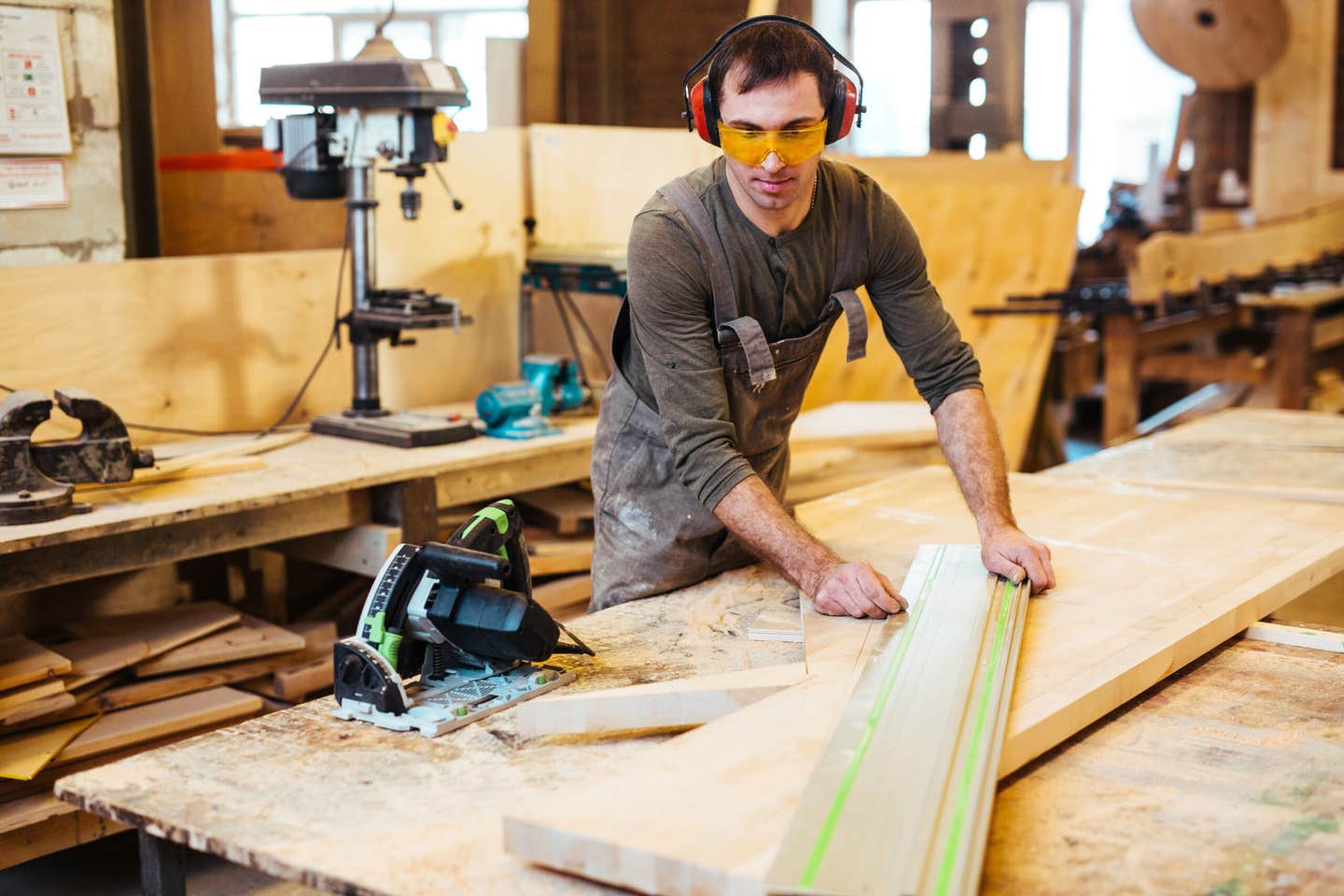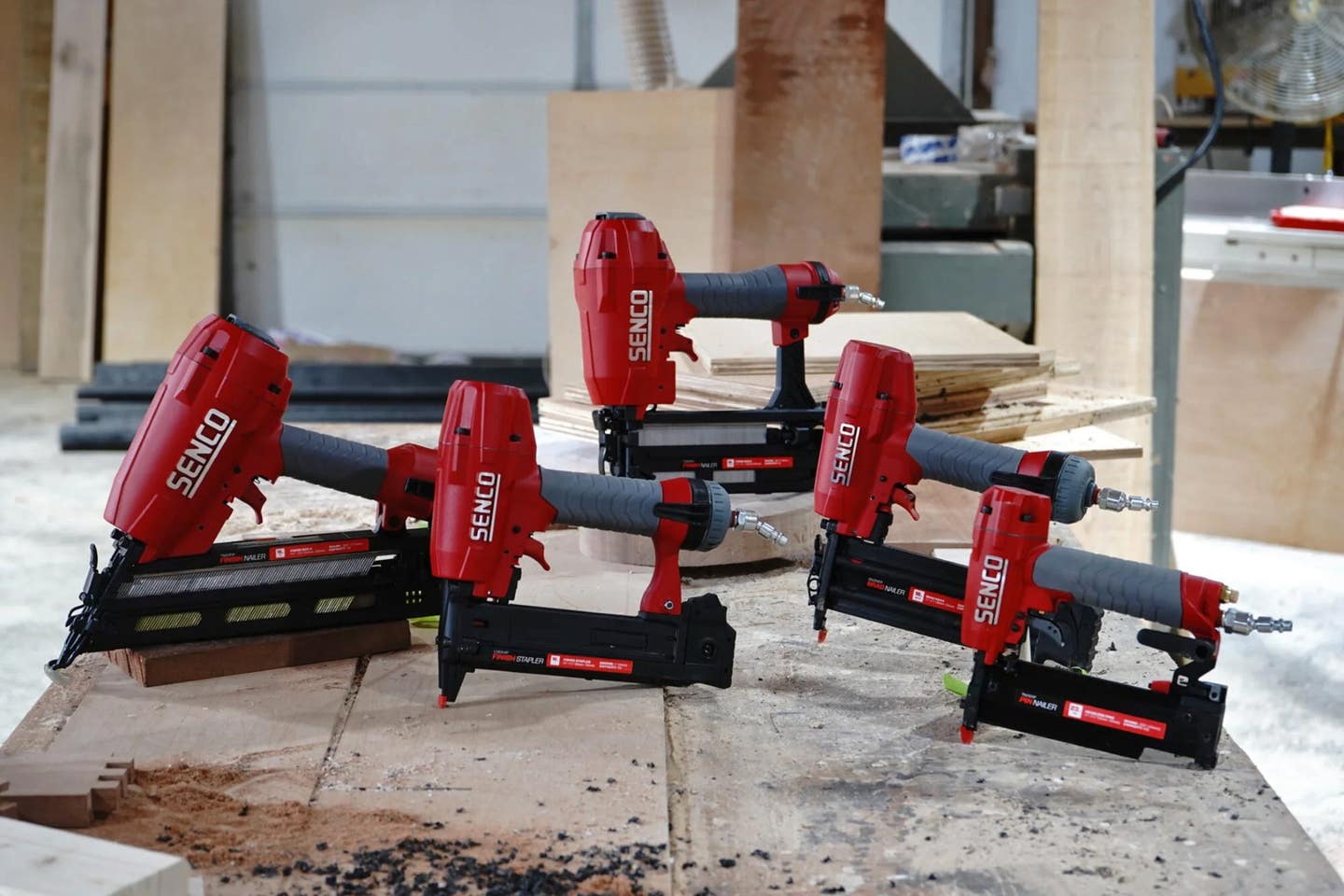Dollars and sense
Sam and Polly Epstein founded Daniel Island Woodworks in Charleston, S.C., in 2005 after creating a successful birdhouse-making business. The shop specializes in custom cabinetry for the commercial market with…
Sam and Polly Epstein founded Daniel Island Woodworks in Charleston, S.C., in 2005 after creating a successful birdhouse-making business. The shop specializes in custom cabinetry for the commercial market with an annual gross of $1.2 million and operates out of a 12,000-sq.-ft. facility just a short drive from the touristy part of the quaint Southern city.
Sam focuses on the design and sales activities, while Polly oversees general management and project operations.
“The most challenging part of running this business is the financial balance between getting the job and selling yourself short. You need the cash flow to be there. Bid proposals can get down to between 1 and 2 percent of one another. If you’re too high, you don’t get the job,” says Polly.
Prosperous beginnings
In 1998, Sam and Polly and started a company to manufacturer birdhouses. He had been a general contractor and she was a stay-at-home mom.
“I wanted to make extra money, so I made two birdhouses and brought them to a garden-and-seed store and asked to sell them on consignment. They called the next day and said they were gone,” says Polly.
She made two more birdhouses that also sold quickly and “Polly’s Perch” was born. To ramp up production, Polly recruited art students from the College of Charleston.
“Lots of students signed up right away. I would drive them to my home and make birdhouses and pay them cash. We did about $1 million in sales per year, selling them through Nordstrom, Disney and other large outlets. It really grew all over the country. We had about 40 employees, but it grew to the point where large companies started selling knockoffs at a fraction of our cost,” she says.
The couple responded by manufacturing in China. A few years later, the Western Star Trucking Co. presented them with a custom cabinetmaking opportunity at their old shop.
“Western Star presented my husband with a whole bunch of prints for the wood trim inside their sleeper cabinets. We got all of their work exclusively. The stars just lined up and the cash just flowed in. It was really a gift. That was really our first start into commercial cabinetry. We already had a CNC machine, edgebander and other woodworking equipment, so we went from the gift industry to the woodworking industry.”
By 2005, they had completely closed down Polly’s Perch and renamed their company Daniel Island Woodworks. The business name comes from the nearby coastal island where they live.
Going commercial
As a general contractor, Sam had all the right connections to put the game into play. They began to pick up more commercial clients throughout Charleston and surrounding areas.
“Right now our clients are all commercial,” says Polly. “We did residential for a while and that sector of the market really struggled here. We have close connections with the commercial market here. We regularly work for five hospitals in the area, restaurant outfits, architectural firms and a lot of the major schools here in the Charleston County School District. We’ve done quite a range of projects.”
The company keeps a steady volume of work going, sometimes three or four projects at the same time. “Most of our business is repeat. Once you get those customers that are happy, they come back to you,” says Polly.
The couple is currently looking into various government set-aside programs designed to help woman-owned minority businesses in the construction sector. The company is also located in a hub zone based on the socioeconomic level of the local population, which provides government-subsidized work for them.
“We would be willing to look at residential jobs again, but first we’d need to hire a designated skilled team to manage it really tightly. With commercial, the architect supplies the drawings so there’s not too much fluctuation in the plans throughout the course of the project. With residential, you have an interior designer, a general contractor and the homeowners who all want to have a say, so it’s difficult to have profitability.”
Behind the scenes
The shop looks like a run-of-the mill warehouse on the outside, but the inside is laid out with a spacious meeting room and large offices. The shop is clean and designed for efficient production and assembly.
Most of the employees have been with the company for more than five years. The newer help tends to rotate more and finding qualified replacements when someone leaves can be tough. There are a handful of computerized machines that help with precision.
“Our biggest sector is plastic laminate. That usually goes into the commercial institutions such as hospitals. We do lots of solid-surface work, particularly in the medical sector. We are a Corian-certified shop so we do countertops in-house,” says Polly.
Watching the numbers
The couple hopes to expand by hiring more employees, adding new equipment and investing more in marketing. But timing is everything and they’re not about to make costly mistakes.
“We definitely want to grow, but it’s tough because of the margins. The margins have really gotten squeezed and you have to manage your overhead. You have to be very careful about expanding because no matter what the volume of work you bring in is, there’s a certain fixed cost that you always have to meet,” says Polly.
An important resource is the Architectural Woodworking Institute, an industry-based organization dedicated to helping shops stay on top of marketing and networking techniques.
“The AWI prints the Cost of Doing Business manual and I read it every year,” says Polly. “It’s a good benchmark to see where we are at annually. I’ve done some of the teleconferencing they’ve offered, which sets up a meeting with about 15 other woodworkers or other industry professionals. It’s very powerful to have everyone sharing ideas and things that have worked or not worked for them.”
Polly says her strength is persistence as she’s constantly on top of project details, no matter how small.
“I would tell anyone that the key to succeeding in this business is to stay involved with the business end of things on a daily basis. It’s a new world and you need to pay attention to the market to persevere. I have seen good woodworkers think they can run a business, but they can’t always.”
Contact: Daniel Island Woodworks, 6333 Fain St., Charleston, SC 29406. Tel: 843-566-1600. www.diwoodworks.com
This article originally appeared in the November 2013 issue.







